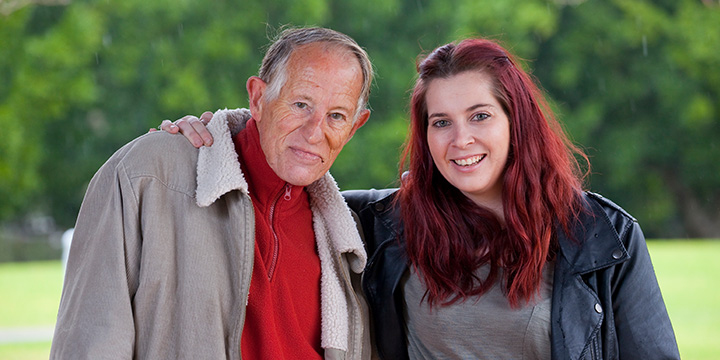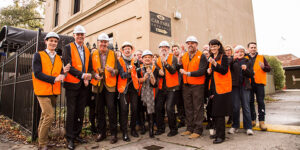Building a life with purpose and possibility
The Arc Social Impact Bond aims to break the cycle of reoffending and homelessness in Victoria. The Arc Program is delivered by Vacro.

Josh1 was accepted into Arc late last year. He was assessed as ready to participate, based on his growing insight, willingness to engage, and the positive steps he’d taken while in custody. During the pre-release phase, Josh identified a continuing need for mental health support. Having participated in psychological and alcohol and drug counselling in prison, he expressed a clear desire to continue this work in the community. He also shared a preference for a quieter lifestyle, especially to begin with, so he could manage his energy and take time to adjust to life outside.
Josh’s Vacro case manager built a strong, trust-based relationship with him during this time. Together, they worked on self-care strategies tailored to the communal living dynamics of Arc House,2 while also creating a space for Josh to think about his future goals. These conversations helped Josh to articulate a vision for his life beyond Arc, centred around stability, connection, and meaningful work.
Josh moved into Arc House and quickly found comfort in familiar routines, settling in well with the other residents. Initial concerns around social withdrawal, linked to his past experiences and the stigma of his offence, were addressed sensitively. With support from his case manager, Josh gradually expanded his engagement with others and has learned how to strike a healthy balance between downtime and community connection. Over time, Josh has built pro-social relationships that reinforce his developing sense of belonging and self-worth.
Josh identified a long-term goal of working in the construction industry. With support from his case manager, he enrolled in a short training course that would give him practical skills while also building confidence. This step was about more than qualifications — it gave Josh momentum and a sense of progress, rather than imposing a pre-set pathway.
Josh is now regularly attending a building and construction certificate course and plans to complete it before applying for a carpentry apprenticeship. Counselling has become an anchor in his routine, and he has also reconnected socially, joining bingo nights with friends and spending time with his elderly aunt who lives nearby. These connections show progress towards identity reconstruction and social integration, two key parts of desistance-informed progress.
Josh is one of 65 participants enrolled as of 30 June 2025 (60 men and 5 women). 22% of participants were engaging in the vital pre-release stage of Arc – building rapport with their case manager, being matched to a home, and preparing to move into the community – while 78% of participants had transitioned to living in the community with ongoing case management support.
Case management support has now shifted to fortnightly check-ins, reflecting both Josh’s increasing independence and the importance of ongoing support. Plans for longer term housing are starting to be explored. At Arc House, Josh has become a quiet and stabilising presence. Many fellow residents turn to him for informal debriefing or emotional support. While he never sought out this role, he embraces it with care — a sign of the self-awareness and strength he has developed on his journey.
The Arc Social Impact Bond (SIB) funds the Arc Program, which is changing lives by creating the conditions for stability, personal growth, and reduced reoffending.
1 This participant has agreed to share their story and their name has been changed to protect their privacy.
2 Arc House is a building with 8 studio apartments which was leased to provide housing for Arc participants. Each apartment is self-contained with its own bathroom and kitchenette. All tenants have access to additional shared living spaces.








